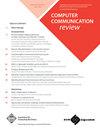信息中心网络、可信执行环境和数字水印与隐私、数据经济及其未来有什么关系?
IF 2.8
4区 计算机科学
Q3 COMPUTER SCIENCE, INFORMATION SYSTEMS
引用次数: 2
摘要
如果互联网广告和营销公司不是必须实施有争议的用户跟踪技术,而是明确要求按名称和类别访问用户数据,例如Alice→Mobility→05-11-2020,情况会怎样?实现这一目标的技术已经存在,正是信息中心网络(ICN),在下一代互联网(NGI)计划的框架下开发了十多年。除了对个人数据的指定访问之外,ICN的网络内存储功能还可以用作检索聚合、匿名数据的基础,甚至可以用于在网络内执行复杂的分析,而不会向外泄露个人数据。在这篇观点文章中,我们讨论了ICNs如何与可信的执行环境和数字水印相结合,可以结合起来构建一个个人数据覆盖的互连网络,在这个网络中,用户将能够控制谁可以访问他们的个人数据,知道所述数据的每个副本在哪里,协商支付以交换数据,甚至声称所有权,并建立由于故障或恶意导致的数据泄漏的责任。当然,要想出具体的设计来实现上述所有目标,需要一个愿意改变个人数据在互联网上处理方式的专门团体付出巨大的努力。我们希望这篇评论文章能够为这个方向播下一些初步的种子。本文章由计算机程序翻译,如有差异,请以英文原文为准。
What do information centric networks, trusted execution environments, and digital watermarking have to do with privacy, the data economy, and their future?
What if instead of having to implement controversial user tracking techniques, Internet advertising & marketing companies asked explicitly to be granted access to user data by name and category, such as Alice→Mobility→05-11-2020? The technology for implementing this already exists, and is none other than the Information Centric Networks (ICN), developed for over a decade in the framework of Next Generation Internet (NGI) initiatives. Beyond named access to personal data, ICN's in-network storage capability can be used as a substrate for retrieving aggregated, anonymized data, or even for executing complex analytics within the network, with no personal data leaking outside. In this opinion article we discuss how ICNs combined with trusted execution environments and digital watermarking, can be combined to build a personal data overlay inter-network in which users will be able to control who gets access to their personal data, know where each copy of said data is, negotiate payments in exchange for data, and even claim ownership, and establish accountability for data leakages due to malfunctions or malice. Of course, coming up with concrete designs about how to achieve all the above will require a huge effort from a dedicated community willing to change how personal data are handled on the Internet. Our hope is that this opinion article can plant some initial seeds towards this direction.
求助全文
通过发布文献求助,成功后即可免费获取论文全文。
去求助
来源期刊

ACM Sigcomm Computer Communication Review
工程技术-计算机:信息系统
CiteScore
6.90
自引率
3.60%
发文量
20
审稿时长
4-8 weeks
期刊介绍:
Computer Communication Review (CCR) is an online publication of the ACM Special Interest Group on Data Communication (SIGCOMM) and publishes articles on topics within the SIG''s field of interest. Technical papers accepted to CCR typically report on practical advances or the practical applications of theoretical advances. CCR serves as a forum for interesting and novel ideas at an early stage in their development. The focus is on timely dissemination of new ideas that may help trigger additional investigations. While the innovation and timeliness are the major criteria for its acceptance, technical robustness and readability will also be considered in the review process. We particularly encourage papers with early evaluation or feasibility studies.
 求助内容:
求助内容: 应助结果提醒方式:
应助结果提醒方式:


